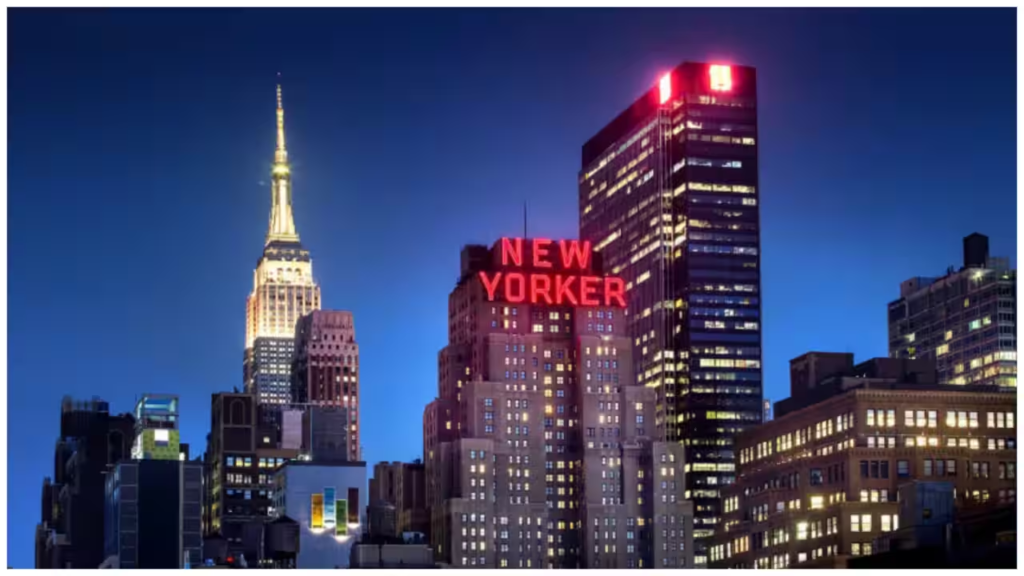
Mickey Barreto faces charges over forged ownership claim at historic New Yorker Hotel
In a dramatic twist to an already unusual case, Mickey Barreto, a man accused of fraudulently claiming ownership of the New Yorker Hotel and living rent-free in the iconic building for years, has been found unfit to stand trial, Manhattan prosecutors announced on Wednesday.
Court determines Barreto’s incompetency
Medical evaluations confirmed that Barreto is mentally unfit to face criminal charges. Doctors presented their findings to the court, and Manhattan District Attorney Alvin Bragg’s office shared the results during a court hearing. Judge Cori Weston has instructed Barreto to secure inpatient psychiatric care by November 13.
Barreto had been receiving outpatient treatment for substance abuse and mental health issues, but a recent evaluation led doctors to conclude that he lacked the mental competency to understand the criminal proceedings against him, according to reports by The New York Times.
Barreto defends actions, denies allegations of criminal intent
Barreto has downplayed allegations of a drug problem, dismissing the claims as simply “partying.” He suggests that prosecutors aim to have him hospitalized because they lack a strong case. In his view, the shift in narrative may work in his favor.
“It went from being unfriendly, ‘He’s a criminal,’ to, oh, they don’t talk about crime anymore. Now the main thing is, like, ‘Oh, poor thing. Finally, we convinced him to go seek treatment,’” Barreto remarked in an interview with The Associated Press.
Legal team plans response to ruling
Barreto’s attorney, Brian Hutchinson, did not immediately respond to requests for comment. However, during the hearing, Hutchinson noted that he intends to request Barreto’s current treatment provider to accommodate him in light of the court’s order.
Allegations of fraud and deceit
Barreto faces a formidable list of 24 charges, including felony fraud and criminal contempt. Prosecutors allege that Barreto forged a deed to the New Yorker Hotel, transferring ownership of the storied building to himself. They claim he went as far as attempting to collect rent from tenants and demanded that the hotel’s bank transfer its accounts to him.
Barreto’s association with the New Yorker Hotel began in 2018 when he successfully argued that his payment for a one-night stay granted him tenant’s rights. This argument rested on a peculiar housing law in New York City, as well as the hotel’s failure to provide legal representation at a key court hearing.
Barreto has stated that the building’s owner, the Unification Church, did not negotiate a lease with him but also could not legally remove him from the premises. This unusual legal scenario allowed Barreto to remain in the building without paying rent.
A historic landmark caught in legal limbo
The New Yorker Hotel, an Art Deco landmark built in 1930, has seen its share of celebrity guests. Iconic figures like Muhammad Ali and other renowned boxers frequented the hotel when fighting at nearby Madison Square Garden. Nikola Tesla, the famed inventor, even resided there for a decade. NBC once broadcasted from its Terrace Room, further cementing the building’s status in Manhattan’s cultural history.
Though the hotel closed in 1972 and later served religious functions, parts of the building reopened to hotel guests in 1994. Its towering red “New Yorker” sign remains an enduring feature of midtown Manhattan’s skyline.
As Barreto’s criminal case unfolds, it now raises broader questions about New York City’s tenant laws and the potential legal loopholes that may arise from them.






